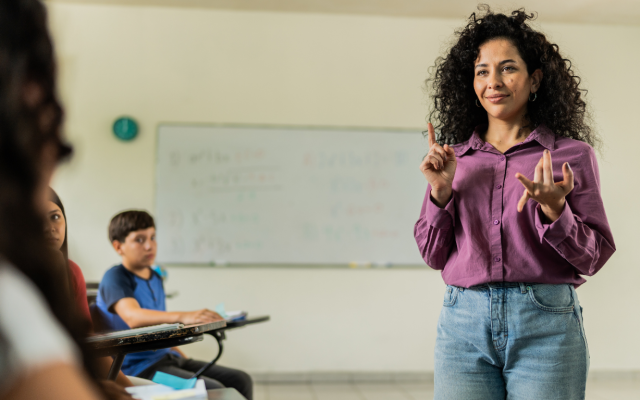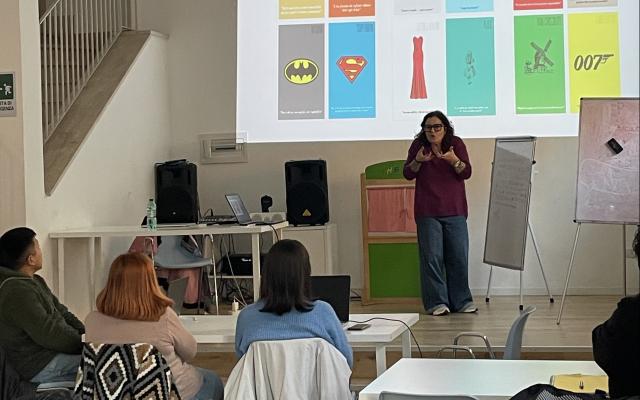“Our School” Professors: an interview with Fortuna Testa
For our column dedicated to “Our School” Professors, this week we present an interview with Fortuna Testa, a primary school teacher at the Istituto Comprensivo 57 S. G. Bosco in Naples. Together with her colleague Lara Fina Ferrari, the professor edited the fifth unit of Integrated Digital Citizenship and Sustainability in Primary School (Erickson, 2023). “The unit on the Good Practice of the Cube started from the need to support fragile students and then became an aide for everyone, allowing the entire class to achieve their objectives. You may wonder ‘Why a cube?’ Cubes belong to our present and past ludic tradition (i.e., dice games, Rubik’s Cube). They promote curiosity for a “game.” The Good Practice of the Cube introduces students to the construction of a cube that presents a single issue from various points of view or subjects.”
INTERVIEW
Can you summarize the activity you conducted and addressed in the book?
In the book, together with my colleague Lara Fina Ferrari, I described the teaching methodology for Good Practice of the Cube scenario-based didactic activities that the teacher had tested in her secondary school classes. I found it particularly stimulating and engaging for my primary school students, too; particularly with fifth graders. The course begins with an issue/stimulus which leads to research-action. The fulcrum of the work is planning, active student participation, and the final digital product.
What was the added value of this initiative for your class? Have suggestions for additional activities or new needs emerged?
The added value is undoubtedly the independence achieved by students. They must learn to coordinate within their groups, respecting roles, tasks, and skills. This ensures that everyone contributes to the success of the final product on the basis of their abilities, developing self-awareness as an essential part of a team. Scenario-based teaching makes courses interesting because they begin with concrete contexts and therefore enrich the students' experience. Furthermore, acting as a facilitator and mentor was an enriching experience, which also stimulated fruitful reflection in the students.




